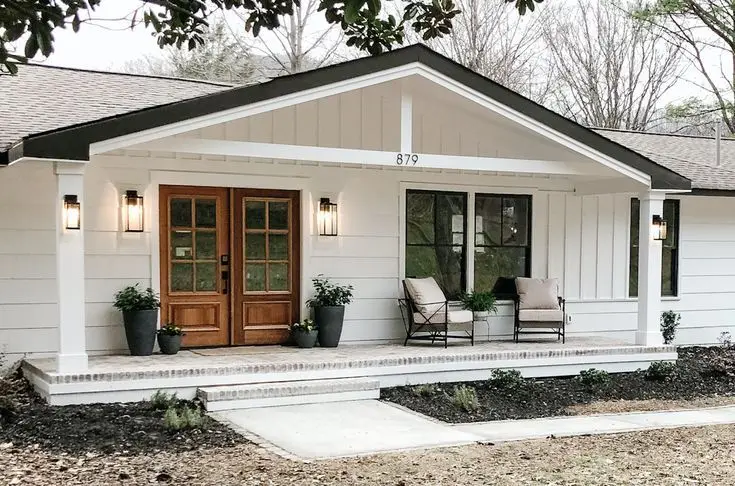Family addiction support programs play a crucial role in aiding individuals in recovery. However, it is equally important to consider the environment they come back to after treatment. This is where the concept of designing wellness-centric home spaces specifically for family addiction support comes into play. By incorporating elements of comfort, tranquility, and functionality, these spaces aim to create a serene and healing atmosphere for both the individual and their loved ones.
In this discussion, we will explore the significance of family involvement in addiction recovery, the essential components of effective family addiction support programs, and practical tips for implementing these programs at home. Join us as we delve into the transformative power of designing serenity in the context of family addiction support.
Key Takeaways
- Addiction affects the entire support system, including family members.
- Trust breakdown is a major impact of addiction on families.
- Financial strain is often experienced by families dealing with addiction.
- The emotional toll on families includes feelings of responsibility, shame, and isolation.
Understanding the Impact of Addiction on Families
Understanding the Impact of Addiction on Families can provide valuable insights into the challenges and hardships that families face when dealing with a loved one’s addiction. Addiction is a disease that affects not only the individual struggling with it but also their entire support system, especially their family. Families often experience a range of emotions, including fear, anger, guilt, and sadness, as they witness their loved one’s destructive behavior and struggle to help them.
One of the major impacts of addiction on families is the breakdown of trust. Addicted individuals often engage in deceptive behaviors, lying and manipulating their loved ones to support their addiction. This can lead to a loss of trust within the family unit, creating a sense of betrayal and resentment. Family members may also experience financial strain as they try to support the addicted individual’s habits or deal with the consequences of their actions.
The emotional toll of addiction on families is immense. Family members may feel responsible for their loved one’s addiction, believing that they could have done something to prevent it. They may also experience feelings of shame and embarrassment, leading them to isolate themselves from their social networks. This sense of isolation can further exacerbate their feelings of helplessness and despair.
Understanding the impact of addiction on families is crucial for developing effective support programs. By acknowledging and addressing the unique challenges faced by families, these programs can provide the necessary resources and support to help families navigate the difficulties of addiction. By offering a sense of belonging and understanding, these programs can empower families to heal and support their loved ones on their journey to recovery.
Importance of Family Involvement in Addiction Recovery
Family involvement plays a crucial role in the successful recovery of individuals struggling with addiction. When a loved one is battling addiction, it affects not only the individual but also the entire family. Family members often feel helpless, confused, and overwhelmed, unsure of how to support their loved one or navigate the challenges that come with addiction. However, research has shown that involving the family in the recovery process can significantly improve outcomes.
First and foremost, family involvement provides a sense of belonging and support for the individual in recovery. Knowing that their loved ones are there for them can motivate and encourage them to stay committed to their sobriety journey. Additionally, family involvement helps create a stable and nurturing environment at home, which is essential for long-term recovery.
Furthermore, family involvement can help address underlying issues that may contribute to addiction. Family therapy sessions allow for open communication and understanding, enabling both the individual and their family members to explore and resolve any unresolved conflicts or traumas. This holistic approach to recovery not only benefits the individual but also promotes healing within the entire family unit.

Key Components of Effective Family Addiction Support Programs
After recognizing the importance of family involvement in addiction recovery, it is essential to understand the key components that make up effective family addiction support programs. These programs are designed to provide support, education, and resources to both the individual struggling with addiction and their family members.
One key component of effective family addiction support programs is education. Family members need to have a thorough understanding of addiction, including its causes, effects, and treatment options. Education can help family members better understand their loved one’s struggles and develop empathy and compassion. It can also provide them with the knowledge and skills needed to support their loved one’s recovery journey.
Another important component is support. Family addiction support programs offer a safe and supportive environment where family members can share their experiences, concerns, and emotions. Support groups and counseling sessions provide opportunities for families to connect with others who are going through similar challenges, fostering a sense of belonging and understanding.
In addition, effective family addiction support programs focus on building healthy communication and boundary-setting skills. Family members learn how to effectively communicate their needs, concerns, and expectations, while also setting appropriate boundaries to protect their own well-being.
Lastly, these programs often provide resources and referrals to additional support services, such as individual therapy, couples counseling, or financial assistance. By addressing the holistic needs of families affected by addiction, these programs empower them to navigate the recovery process with confidence and resilience.
Creating a Wellness-Centric Home Environment for Support
Creating a nurturing and supportive home environment is crucial when it comes to providing wellness-centric support for families affected by addiction. The home should be a sanctuary where individuals feel safe, supported, and encouraged to heal.
Here are three key elements to consider when designing a wellness-centric home environment for addiction support:
- Comfortable and inviting spaces: It is important to create spaces that promote relaxation and comfort. This can be achieved through the use of soft furnishings, warm colors, and natural materials. Having cozy seating areas and comfortable bedrooms can help individuals feel at ease and create a sense of belonging.
- Calming and peaceful atmosphere: Incorporating elements that promote tranquility can greatly benefit individuals in recovery. Consider using soothing colors, natural light, and gentle sounds to create a calming atmosphere. Adding plants, artwork, and aromatherapy can also contribute to a peaceful environment.
- Supportive resources: Make sure the home is equipped with resources that support wellness and recovery. This can include books on addiction and recovery, access to support group information, and contact information for therapists or counselors. Having these resources readily available can help individuals feel supported and empowered to continue their journey towards healing.
Incorporating Design Elements for Serenity and Healing
Incorporating design elements that promote serenity and healing is essential when creating a wellness-centric home environment for families affected by addiction. The design of the physical space plays a crucial role in supporting the emotional and mental well-being of individuals in recovery and their loved ones. By carefully selecting and arranging elements within the home, it is possible to create an atmosphere that fosters peace, tranquility, and healing.
One important design element to consider is natural light. Sunlight has a positive impact on mood and can help create a sense of openness and positivity within the home. Large windows, skylights, and light-colored walls can maximize natural light and create a welcoming and uplifting ambiance.
Another key element is the use of calming colors. Soft, neutral tones such as blues, greens, and earthy shades can evoke a sense of calmness and relaxation. These colors can be incorporated through paint, upholstery, and accessories to create a soothing and serene environment.
In addition to color, the use of natural materials can enhance the healing atmosphere in the home. Wood, stone, and other natural textures can create a connection to nature and bring a sense of grounding and warmth to the space.
Lastly, the layout and organization of the home should promote functionality and ease of movement. Clear pathways, ample storage, and comfortable furniture arrangements can contribute to a sense of order and tranquility, allowing individuals to focus on their recovery journey.
Practical Tips for Implementing Family Addiction Support Programs at Home
When it comes to implementing family addiction support programs at home, there are practical tips that can help create a nurturing and healing environment for everyone involved. Here are some suggestions to consider:
- Establish open communication: Encourage open and honest communication within the family. Create a safe space where each member feels comfortable sharing their thoughts and feelings without judgment. Regular family meetings can provide an opportunity for everyone to express their concerns and seek support.
- Set clear boundaries: Establishing clear boundaries is essential to maintain a healthy and supportive environment. Clearly define expectations, rules, and consequences for behavior. This helps promote stability and accountability within the family.
- Encourage self-care: Addiction affects the entire family, and it is important to prioritize self-care for each member. Encourage activities that promote physical, emotional, and mental well-being, such as exercise, therapy, and hobbies. Taking care of oneself allows for better support and resilience in dealing with the challenges of addiction.
Frequently Asked Questions
What Are Some Common Challenges That Families Face When Dealing With Addiction?
Families dealing with addiction face numerous challenges, including communication breakdowns, emotional turmoil, financial strain, and a sense of helplessness. These difficulties can significantly impact the well-being of both the individual struggling with addiction and their loved ones.
How Does Family Involvement Contribute to the Success of Addiction Recovery?
Family involvement is crucial for the success of addiction recovery. By providing support, understanding, and encouragement, families play a vital role in creating a nurturing environment that promotes healing and helps individuals overcome their addiction.
What Are Some Essential Elements That Every Effective Family Addiction Support Program Should Have?
An effective family addiction support program should have several essential elements. These may include education about addiction, open communication, individual and family therapy sessions, support groups, and resources for ongoing recovery.
How Can Design Elements in a Home Environment Promote Serenity and Healing for Families Dealing With Addiction?
Design elements in a home environment can promote serenity and healing for families dealing with addiction by creating a calming atmosphere, incorporating natural elements, and providing designated spaces for relaxation and reflection.
What Are Some Practical Tips for Implementing Family Addiction Support Programs at Home?
Practical tips for implementing family addiction support programs at home include creating a designated space for therapy sessions, establishing a routine that promotes open communication and emotional support, and integrating wellness activities such as meditation and exercise into daily life.
Conclusion
In conclusion, designing wellness-centric home spaces for family addiction support programs is crucial for fostering healing, emotional well-being, and a sense of belonging.
By carefully selecting colors, textures, and furniture placement, families can create a supportive atmosphere that aids in the recovery process and strengthens relationships.
Incorporating elements of nature, such as natural light and greenery, enhances the overall ambiance and promotes a sense of calm.
By implementing these design principles, families can create a nurturing environment that supports the recovery journey.
You may also like to read:
Wellness at Work: How Healthy Office Lunch Ideas Improve Home Remodeling Workdays



